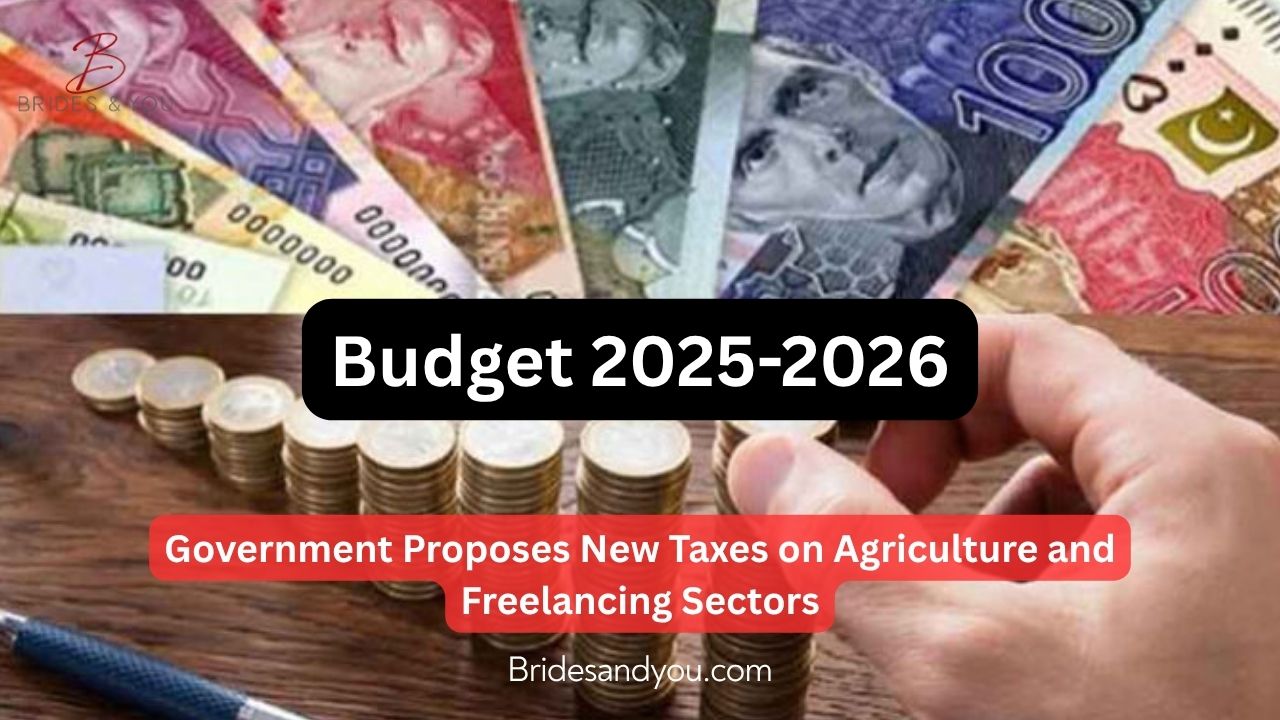Now Reading: New Taxes on Agriculture and Freelancing Income: Full Breakdown of Budget 2025–26 Proposals
-
01
New Taxes on Agriculture and Freelancing Income: Full Breakdown of Budget 2025–26 Proposals
New Taxes on Agriculture and Freelancing Income: Full Breakdown of Budget 2025–26 Proposals

The Government of Pakistan has finalized the blueprint of its upcoming Budget 2025–26, and it comes with significant changes aimed at expanding the country’s tax net. Following the International Monetary Fund’s (IMF) directives, several major proposals are on the table, especially new taxes on agriculture and freelancing income—a move that could impact millions of individuals and businesses across the country.
Let’s break down what these tax changes mean for different sectors and income groups.
1. Taxing the Untaxed: Agriculture and Freelancing Under the Radar
Historically, agricultural income in Pakistan has largely remained outside the formal tax regime. However, with the IMF urging for wider fiscal reforms and tax fairness, the government is now considering imposing taxes on agricultural earnings.
Likewise, freelancers and digital content creators, especially those working through international platforms like Upwork, Fiverr, and YouTube, may soon face new taxation rules. While freelancing has become a vital source of income for many Pakistanis, this untapped segment is being eyed to broaden the tax base.
What Could This Mean?
- Agricultural Sector: Farmers earning above a certain threshold may be required to declare income and pay taxes. This could encourage formal documentation of the sector but may burden small landholders.
- Freelancers & Digital Workers: Earnings from freelancing may become subject to income tax, and platforms may be asked to report transactions or deduct taxes at source.
2. Property, Beverages & Tobacco: Changes in Indirect Taxes
The budget also hints at adjusting indirect taxes:
- Federal Excise Duty (FED) on Property: A proposal to abolish FED on property transactions is under consideration. This could help boost the sluggish real estate market.
- Beverages and Cigarettes: Tax rates may be reduced slightly on these items, potentially to balance health concerns with economic revenue goals.
3. Relief for the Salaried Class and Pensioners
Despite the increased tax scrutiny, some relief measures are being proposed for the working class:
- 10% Tax Relief for salaried individuals to counter inflation.
- 5% to 7.5% Pension Increase to support retirees.
- 30% Allowance for government employees in grades 1 to 16.
- Merging Ad-hoc Allowances into basic pay to simplify salary structures and increase long-term benefits.
These changes aim to cushion lower and middle-income groups while enhancing transparency in compensation.
4. Region-Specific and Sectoral Tax Adjustments
In an effort to standardize taxation:
- Former FATA Region: The current tax exemptions may end, with a proposed 12% tax to be introduced.
- Fertilizers, Pesticides, and Bakeries: The IMF is urging taxation on these previously exempt items, likely impacting both producers and consumers.
These steps align with the broader goal of formalizing the economy, minimizing loopholes, and strengthening the federal revenue system.
5. Capital Gains Tax: Potential Hike Ahead
Investors should also prepare for a possible increase in Capital Gains Tax (CGT) on shares and property. This is meant to curb speculative activity and bring long-term stability to financial and real estate markets.
Why These Changes Matter
These proposed changes are part of Pakistan’s commitment to fiscal discipline and sustainable development. By widening the tax net and bringing freelancing and agriculture into formal documentation, the government aims to reduce dependency on indirect taxation and foreign aid.
But the real question remains: Can the system support compliance, and will implementation be equitable? Only time—and execution—will tell.
Conclusion: Stay Informed, Stay Prepared
The new taxes on agriculture and freelancing income represent a seismic shift in Pakistan’s fiscal landscape. Whether you’re a farmer, digital nomad, property investor, or salaried employee, Budget 2025–26 will affect your financial planning.
Stay updated with reliable sources and consult financial experts if needed—because being informed is the first step toward being prepared.










